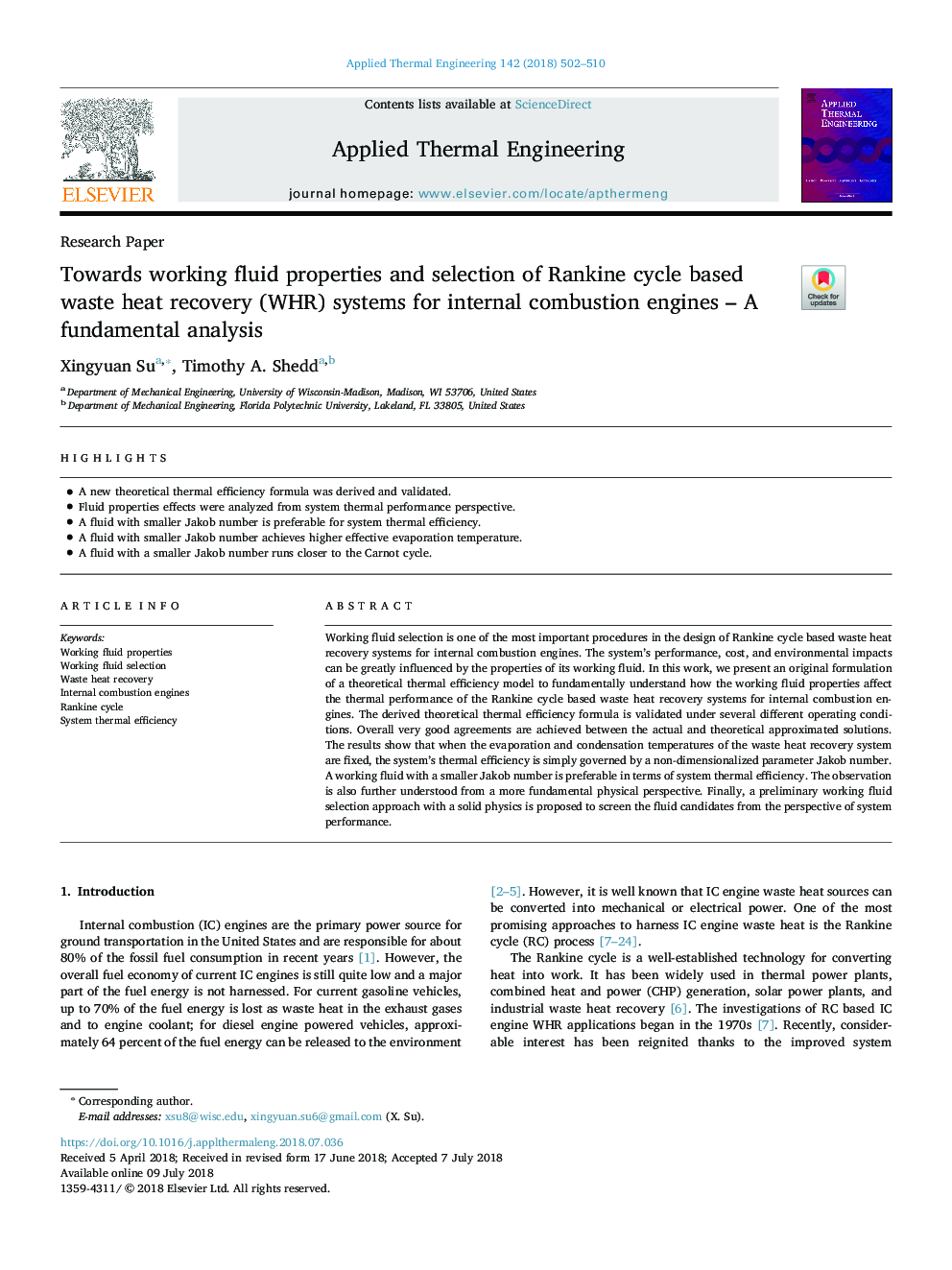| Article ID | Journal | Published Year | Pages | File Type |
|---|---|---|---|---|
| 7044830 | Applied Thermal Engineering | 2018 | 9 Pages |
Abstract
Working fluid selection is one of the most important procedures in the design of Rankine cycle based waste heat recovery systems for internal combustion engines. The system's performance, cost, and environmental impacts can be greatly influenced by the properties of its working fluid. In this work, we present an original formulation of a theoretical thermal efficiency model to fundamentally understand how the working fluid properties affect the thermal performance of the Rankine cycle based waste heat recovery systems for internal combustion engines. The derived theoretical thermal efficiency formula is validated under several different operating conditions. Overall very good agreements are achieved between the actual and theoretical approximated solutions. The results show that when the evaporation and condensation temperatures of the waste heat recovery system are fixed, the system's thermal efficiency is simply governed by a non-dimensionalized parameter Jakob number. A working fluid with a smaller Jakob number is preferable in terms of system thermal efficiency. The observation is also further understood from a more fundamental physical perspective. Finally, a preliminary working fluid selection approach with a solid physics is proposed to screen the fluid candidates from the perspective of system performance.
Related Topics
Physical Sciences and Engineering
Chemical Engineering
Fluid Flow and Transfer Processes
Authors
Xingyuan Su, Timothy A. Shedd,
